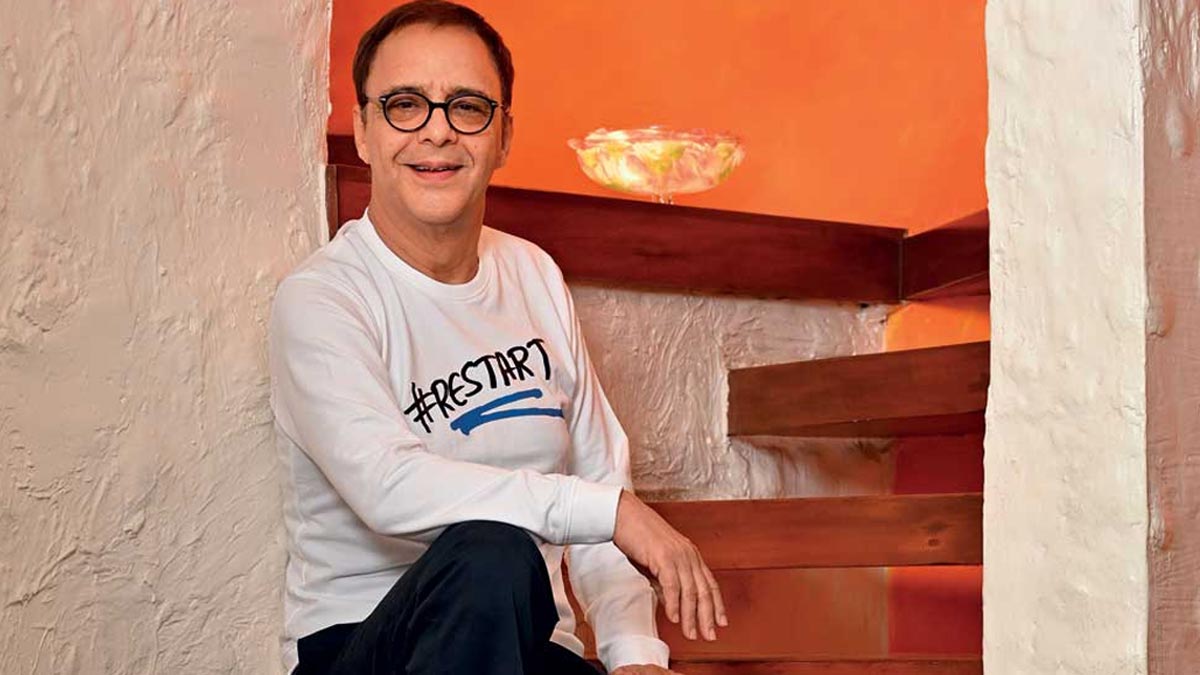
Vidhu Vinod Chopra, a stalwart in Bollywood known for his cinematic masterpieces, recently opened up about a deeply personal battle his family has faced—his daughter Isha’s diagnosis of bipolar disorder. The revelation offers a glimpse into the emotional journey the filmmaker and his family have endured and highlights the importance of understanding and supporting those living with bipolar disorder.
Table of Content:-
A Shocking Diagnosis: Understanding Bipolar Disorder
When Chopra first learned about his daughter’s condition, he was taken aback. As per Dr Preeti Singh, Chief Medical Officer, Lissun (Mental Health & Emotional Wellness Startup), bipolar disorder, formerly referred to as manic depression, is a mental health condition characterized by extreme mood swings that include emotional highs (mania or hypomania) and lows (depression). These mood episodes can be incredibly disruptive to a person’s life, affecting their ability to perform daily tasks and maintain relationships.
Bipolar disorder typically manifests in late adolescence or early adulthood, with the average age of onset being around 25 years. The National Alliance on Mental Illness estimates that about 2.7% of U.S. adults, approximately 7 million people, live with this condition. While the disorder can be managed with proper treatment, it often presents significant challenges, both for those affected and their families.
.jpg)
A Family’s Journey: The Role of Support and Art in Healing
Chopra’s response to his daughter’s diagnosis was crucial. He credits their family doctor, who has been a long-standing figure in Isha’s life, for providing the initial guidance that helped them navigate this difficult journey. The doctor emphasized that bipolar disorder is a condition like any other and that the family needed to confront it together.
Chopra also observed the therapeutic power of art in managing Isha’s condition. When Isha was in Pune, she found solace in creative expression under the guidance of a mentor. Chopra noted that art allows the mind to focus and momentarily escape the chaos that bipolar disorder can bring. Engaging in artistic activities became a vital part of Isha’s coping mechanism, helping her find order amidst the disorder.
Also Read: London Woman Turned Out To Be Allergic To Her Own Menstrual Cycle; Know All About The Diagnosis
The Caregiver’s Role: Bearing the Burden
In his conversation, Chopra likened the role of a caregiver to the mythological Sagar Manthan, where the family must bear the poison drawn from the afflicted person’s mind. This metaphor underscores the immense emotional toll that caregivers often experience. Chopra’s approach was to absorb Isha’s stress, ensuring she wasn’t alone in her battle. This selfless act of bearing the emotional weight is a testament to the lengths to which families go to support their loved ones.
How to Support Someone with Bipolar Disorder
Supporting someone with bipolar disorder is no small feat. The unpredictability of the condition can be challenging, but with the right approach, caregivers can make a significant positive impact on their loved one’s life. Here are some strategies to help:
View this post on Instagram
Educate Yourself
Understanding bipolar disorder is the first step. Learn about the symptoms of manic and depressive episodes so you can recognize them and respond appropriately. The more informed you are, the better you can support your loved one.
Listen and Offer Emotional Support
Sometimes, all a person with bipolar disorder needs is someone to listen. Being a compassionate listener can help them feel understood and less isolated. Avoid offering unsolicited advice unless they ask for it—your primary role is to be a source of comfort.
Develop a Plan
Bipolar disorder can be unpredictable, making it essential to have an emergency plan. This plan should include steps to take during severe mood episodes, such as what to do if your loved one has suicidal thoughts or exhibits manic behaviour. Additionally, having a daily routine can help manage symptoms during more stable periods.
Take Care of Yourself
Caring for someone with bipolar disorder can be exhausting. Ensure you’re also looking after your own well-being—get enough rest, eat well, and stay active. Maintaining your health enables you to better support your loved one.
Support Without Pressure
It’s important to recognize when your loved one needs professional help. While you can provide emotional support, there are times when a mental health professional must intervene. Respecting their autonomy while knowing when to step back is key.
Seek Help When Necessary
If the situation becomes overwhelming, don’t hesitate to reach out for professional help. In emergencies, such as when there’s a risk of harm, contact emergency services immediately. Your loved one’s safety—and your own—should always be the top priority.
Bottomline: Navigating Bipolar Disorder with Compassion
Vidhu Vinod Chopra’s openness about his daughter’s struggle with bipolar disorder serves as a reminder of the importance of compassion and understanding in the face of mental health challenges. By educating yourself, offering emotional support, and knowing when to seek professional help, you can play a vital role in the life of someone living with bipolar disorder. Remember, while the journey may be difficult, your support can make all the difference.
Also watch this video
Read Next
Managing Chronic Obstructive Pulmonary Disease Fatigue: Follow These 8 Tips To Boost Energy
How we keep this article up to date:
We work with experts and keep a close eye on the latest in health and wellness. Whenever there is a new research or helpful information, we update our articles with accurate and useful advice.
Current Version
